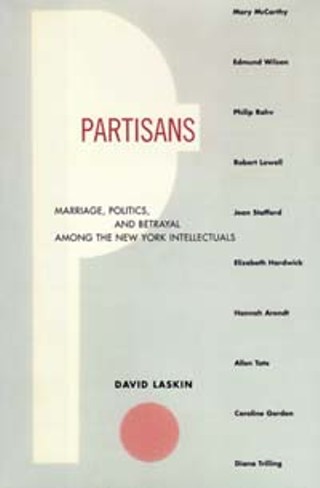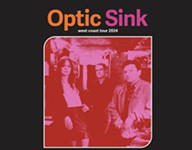Partisans: Marriage, Politics, and Betrayal Among the New York Intellectuals
Reviewed by Ann Guidry, Fri., Feb. 25, 2000

Partisans: Marriage, Politics, and Betrayal Among the New York Intellectuals
by David LaskinSimon & Schuster, 320 pp., $26
The intellectual giants of the late Thirties found their orbit around the Partisan Review, the influential publication that served to inform a culture as literary and political authority for nearly three decades. That the stars of that universe -- Mary McCarthy, Edmund Wilson, Philip Rahv, Robert Lowell, Jean Stafford, Caroline Gordon, Allen Tate, Elizabeth Hardwick, Hannah Arendt, and Diana Trilling -- married (sometimes each other) and had numerous sexual encounters (sometimes with each other) accounts for the base of Laskin's work.
Laskin builds the characters, their unions, and careers in the shadow of the events of American and European history. Both the Great Depression and the escalation of events leading up to World War II provide ideological fodder for the group, indeed providing them with their signature brand of revolutionary Marxist politics (which later prove to be shortsighted and merely fashionable). The same goes for the vehement anti-feminist stance the female members of the clique took and energetically rallied behind. The author wisely constructs his thesis around the idea that this was the last generation before feminism, spotlighting the achievements of fiercely ambitious, talented, and successful women. "The 'system' was working for them," Laskin writes, "so why knock it?" They cried "Revolution" at cocktail parties and in the intellectual journal that published and paid them. They sneered at the idea of "women's lib" because they were already liberated.
Partisans really comes together in Chapter Eight, "The Early 1960s: Firestorms." Robert Lowell's Life Studies is released, as well as McCarthy's The Group, Arendt's Eichmann in Jerusalem, and Betty Friedan's The Feminine Mystique -- audacious, controversial, and confessional books all. The social issues of the day baffled the intellectuals as their elitist, exclusionary politics began to seem irrelevant. "The Vietnam War, the New Left, and Black Power cut their politics to shreds; the women's movement undermined their social and sexual arrangements," Laskin explains. He eloquently draws a sweeping portrait of a literary generation deeply involved in the passionate life of the mind and letters while engaging readers in a closely taught lesson of history and American culture tinged with the scent of cigarette smoke and gin.








